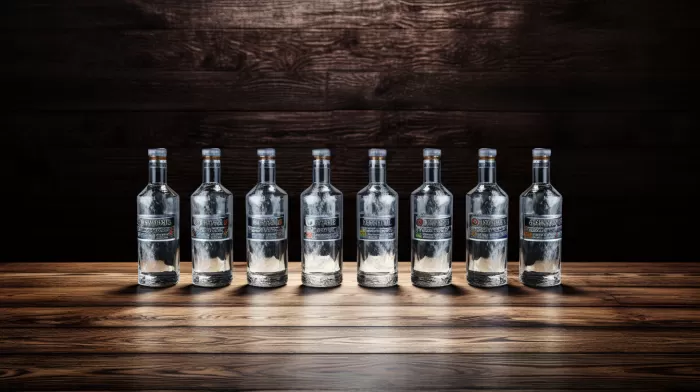It’s no secret that many factors contribute to how long we can expect to live, but you might be shocked by one of the most influential and dangerous habits that millions of people share. So, what is this deadly habit? Believe it or not, heavy consumption of alcohol, particularly spirits such as vodka, can have a significant impact on our life expectancy.
The Devastating Effects of Alcohol on Life Expectancy
In a thought-provoking study, British scientists calculated that a whopping 25 percent of Russian men die before they reach the age of 55 years. In comparison, only 7 percent of British men die at such a young age. While part of this discrepancy can be attributed to the high rate of smokers among Russians, researchers have discovered an underappreciated danger that is even more significant: a shared love for vodka.
Researcher Sir Richard Peto from the University of Oxford explained, “Russian death rates have fluctuated wildly over the past 30 years as alcohol restrictions and social stability varied under Presidents Gorbachev, Yeltsin, and Putin, and the main thing driving these wild fluctuations in death was vodka. This has been shown in retrospective studies, and now we’ve confirmed it in a big, reliable prospective study.”
The Link Between Vodka Consumption and Mortality Rates
To understand the connection between vodka and mortality, researchers surveyed roughly 151,000 people about their vodka consumption and tracked their health for up to 10 years. During this time, about 8,000 of the participants died. The findings were shocking: men who drank three or more bottles of vodka a week had a higher risk of death compared to those who consumed less than one bottle a week.
The study estimated that the 20-year risk of death for smokers between the ages of 35-54 years is 35 percent for men who reported drinking three or more half-liter bottles of vodka a week. This figure drops to 16 percent for men who reported consuming less than half a liter a week. The corresponding risk of death for those aged 55-74 years is 64 percent and 50 percent, respectively.
The Impact of Government Intervention
Interestingly, when Russia restricted alcohol sales in the past, the life expectancy of its citizens increased. Researcher David Zaridze from the Russian Cancer Research Center in Moscow shed light on this phenomenon by explaining, “The significant decline in Russian mortality rates following the introduction of moderate alcohol controls in 2006 demonstrates the reversibility of the health crisis from hazardous drinking. People who drink spirits in hazardous ways greatly reduce their risk of premature death as soon as they stop.”
What Does This Mean for the Average Person?
While the study focused on Russian vodka consumption, the findings can provide valuable insight for anyone who consumes large quantities of alcohol, especially spirits. Alcohol, in moderation, may not pose a significant threat to our health. However, excessive consumption can lead to a drastic decline in life expectancy.
In fact, in many cases, heavy drinkers would experience an immediate reduction in their risk of premature death if they simply ceased their dangerous habits. This reinforces the importance of responsible drinking and seeking help if struggling with alcohol addiction.
Moving Forward: What Can Be Done?
Understanding the potential consequences of alcohol abuse is crucial, as it empowers us to make informed decisions about our lifestyles. Encouraging responsible drinking habits and providing support for those who struggle with alcohol addiction is essential.
If you or someone you know consumes alcohol excessively, consider seeking assistance from a medical professional, therapist, or support group. Remember, the quality and length of our lives are often determined by the choices we make today – prioritizing our health should always be at the forefront.
In conclusion, while it might be tempting to indulge in spirits or other alcoholic beverages at times, it’s important to understand the potential consequences of such habits, particularly when consumption becomes excessive. By practicing moderation and being mindful of the potential risks, we can make healthier choices that ensure a long and fulfilling life.


![8 Simple Tips for a Longer, Happier Life [See Them Now]](https://naturalhealthreserve.com/wp-content/uploads/2024/01/8-healthy-tips-live-longer-slideshow-300x168.webp)
